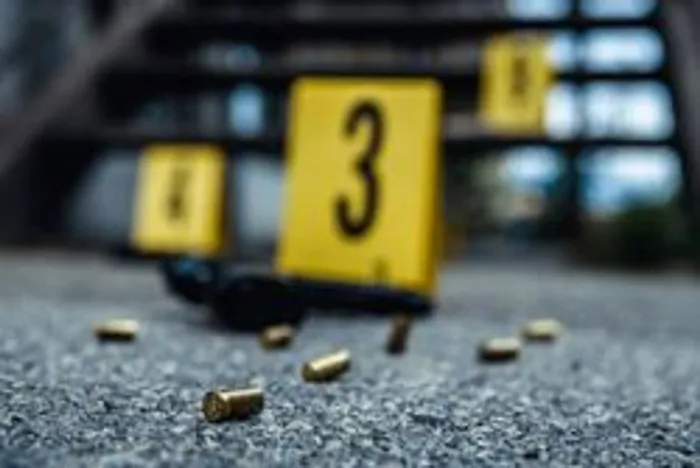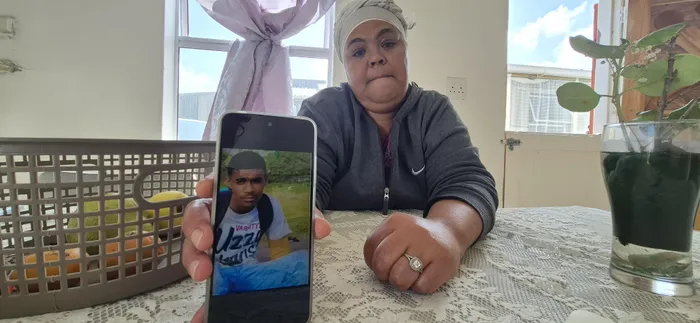South Africa's forensic crisis: Backlogs in crime investigations leave families in limbo

Backlogs in forensic testing hinder justice in South Africa
Image: File
South Africa is facing a deepening crisis in its forensic and crime investigation systems, with massive backlogs in autopsies, toxicology, ballistics and DNA testing leaving thousands of families in limbo and countless gun-related cases stalled indefinitely.
The delays, described by officials as the worst in years, have created a domino effect across the criminal justice system. Investigations are grinding to a halt, prosecutions are collapsing, and grieving families are left waiting years for closure.
As of August 2025, the national backlog for toxicology cases alone stood at around 40,000, according to data from the National Health Laboratory Service (NHLS).
In provinces such as the Western Cape, families of gun violence victims say they face waiting times for final autopsy reports when testing is required. These delays mean that in many cases, families cannot complete funeral arrangements or settle insurance and legal matters.
For mom Megan Appolis,from Cape Town, the reality of the backlog hit hard. She told the Weekend Argus that while at the mortuary she was informed she would need to wait a bit longer to bury her son, Aiden Petersen.
Petersen, 22, was gunned down in Kensington a week ago. He had been visiting his girlfriend when unknown suspects opened fire. The investigation is still ongoing, with no arrests made.
The Western Cape Department of Health and Wellness (WCDHW) however reiterated that there are no backlogs in the province’s forensic pathology services, stating that all 16 Forensic Pathology Service (FPS) facilities in the Western Cape are fully operational, with each case managed carefully and with respect, ensuring the dignity of deceased persons.
The department acknowledged that families sometimes do not fully understand the medico-legal process, particularly when additional investigations or specialised tests are required, which can extend the time before reports or remains are released.
WCDHW stressed that these measures are necessary to ensure accuracy and credibility in court proceedings.
“There is no legislated turnaround time for autopsy completion, as each case requires a thorough medico-legal investigation in line with the National Health Act, Inquests Act, and Criminal Procedure Act.
“Staffing levels are continually reviewed, and ongoing training and capacity-building initiatives are in place to maintain high-quality services. Funding for forensic pathology remains stable, allowing the province to maintain operations across all facilities,” said the department spokesperson Dwayne Evans.

Megan Appolis with a picture of her son Aiden Petersen whp was murdered
Image: Tracy-Lynn Ruiters
The concerns extends far beyond the mortuaries.
In the week, Mishak Mkhabela, head of the Ballistics Section at the SAPS Forensic Science Laboratory, revealed before the Madlanga Commission of Inquiry that there are more than 41,000 firearm-related cases awaiting analysis nationwide. Of these, more than 29,000 firearms are piled up at the Pretoria lab alone.
The country’s DNA backlog is even larger, exceeding 140,000 cases as of mid-2025. These delays make it nearly impossible for investigators to link suspects to crimes, contributing to rising impunity in violent cases.
Action Society said the crisis at the SAPS Ballistics Division, revealed during testimony before the Madlanga Commission of Inquiry this week, confirms the urgent need to decentralise South Africa’s forensic services and partner with private laboratories to restore functionality and trust in the justice system.
According to Juanita du Preez, spokesperson for Action Society, the backlog of more than 41,000 unresolved ballistic cases is further proof that the state-run forensic system is no longer capable of delivering justice.
“The backlog in the SAPS Ballistics Division is a national emergency, but it is also a symptom of something far deeper,” Du Preez said.
“The centralised forensic model is collapsing. Unless South Africa allows qualified private forensic laboratories to assist under strict oversight, the wheels of justice will remain stuck.”
Action Society warned that the ballistics backlog forms part of a much wider forensic breakdown, with DNA and toxicology backlogs even worse.
“Hundreds of thousands of DNA samples remain unprocessed, which means rape and murder investigations across the country are paralysed,” Du Preez said. “Both the DNA and ballistics crises stem from the same problem: a centralised and mismanaged system that has lost capacity, credibility, and public trust.”
The organisation says that public-private partnerships and decentralisation are the only viable way to clear the backlogs, restore accountability, and rebuild capacity within the forensic environment.
“Private forensic capacity in South Africa already meets international standards. There is no reason why these laboratories cannot be contracted to assist with DNA, toxicology, and ballistics testing,” Du Preez added. “It is time to take forensic work out of bureaucratic paralysis and put it in the hands of professionals who can deliver results.”
Adding to the crisis, Western Cape detectives are buckling under crippling caseloads, with many handling more than double the recommended number of cases.
DA Western Cape spokesperson on Police Oversight and Community Safety, Benedicta van Minnen, said detectives are being “set up to fail,” with workloads far beyond capacity.
A parliamentary reply revealed that while SAPS recommends a maximum of 60 cases per detective, many precincts handle double that. Cape Town Central has 70 detectives with a -53 vacancy rate, and Mitchells Plain’s 110 detectives each juggle around 82 cases. Some, like Samora Machel, face 367 cases per detective.
Van Minnen said this collapse in detective units means the public is “denied justice,” as officers cannot investigate effectively.
National Assembly Chairperson of the Portfolio Committee on Police Ian Cameron said there will be a push for a complete forensic overhaul, citing evidence from the Madlanga Commission exposing errors and manipulation in ballistic reports linked to multiple murders, including high-profile figures.
He called for independent audits, skills development, and integrity testing of senior SAPS officials, warning that without accountability, ballistic evidence will continue to be unreliable and public trust irreparably damaged.
tracy-lynn.ruiters@inl.co.za
Related Topics: